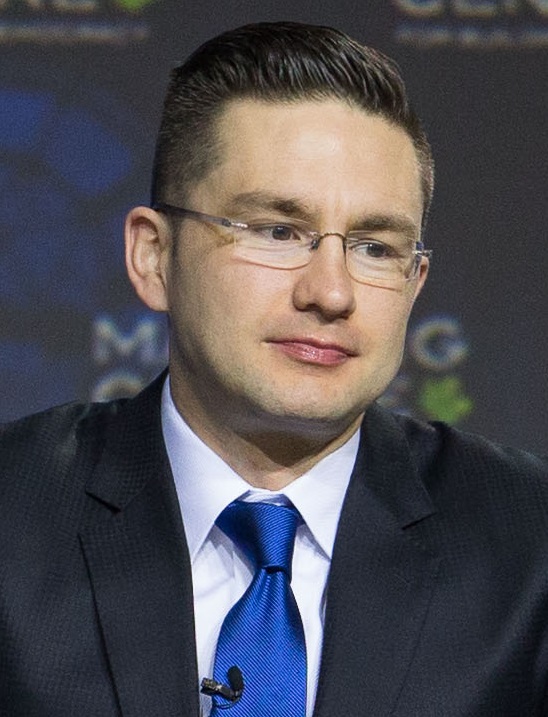Here’s why Pierre Poilievre would be a mistake for the Conservative Party

If the Conservative Party’s leadership problem has shown us anything in the last few years, it is that the Party is a coalition of right-leaning political thinkers. Since Erin O’Toole was ousted as leader of the Conservative Party, there has been much speculation on who will be the new leader.
Pierre Poilievre has predictably put himself forward as a candidate for the Party leadership. He is known for being a passionate opponent of the government of the day, which has propelled him to the centre of conservative federal politics in Canada. He is a Western-Canadian blue tory with a strong social media presence and even stronger support among the fringe of the Party. Recently, he has come out in support of the “Freedom” convoy— calling these truckers “bright, joyful, and peaceful Canadians championing freedom over fear.”
Considering that Poilievre is politically poised, it must be asked: is he too controversial?
First, let us look to the Conservative Party itself to understand the political landscape. As Party leader, O’Toole had to deal with many problems and squabbles between factions. This is not unique to him— it is the Conservative Party, after all. His greatest problem though was that he failed to keep the peace within the Party. Not since Harper has any party leader been able to control these factions and maintain unity.
Considering the divisions of the Party, it makes sense why a figure like Pierre Poilievre should emerge to the centre of conservative federal politics, but what was the straw that broke the camel’s back? COVID-19, of course.
It is important to understand the factions within the Party. The traditional division of the Conservative Party is between colours: Blue tories, who oppose government activity and generally concur that markets yield greater positive outcomes than government programs; and Red tories, who accept the role of government in society. Perhaps the biggest difference is their view on collectivity. Whereas the blue tory will emphasise the individual, the red tory will emphasise community.
The pandemic has led the government to do two notable things: one, spend at extreme rates without any known plans of servicing its debts; and two, to establish vaccination mandates across multiple sectors of society. One would think that government spending and mandates coupled together would unite the Conservative Party in its opposition to Prime Minister Trudeau, no? No. Instead, the Party’s fringe has mobilised its means to deviate. The fact that O’Toole was ousted in such haste indicates this, among other things.
By ousting O’Toole, the remainder of the Party’s support has lost leadership security. Who is a part of this remainder? It is the vast group of conservatives ranging from progressive conservatives and centrists to people who simply do not support Trudeau.
Poilievre would not comfort this group. One must also consider the politics of vaccines. Many conservatives support vaccines, or at the very least, do not wish to diverge their opposition to the government on the subject. He, however, is thrusting it right into the Party’s agenda. If he became the leader, he would thrust this to the centre of its platform.
By emphasising the issue of vaccine mandates, and going so far as to support these truckers in their hollow fight of “freedom,” the Party risks doing two things: one, minimising the very significant issue of the government’s overspending; and two, Party unity, which is in their best interest if they wish to be seen by Trudeau as a legitimate threat.
What would the Canadian public think? Of course, I must not fall prey to speculation, but it seems intuitive. Most Canadians who are centrist or centre-right will gravitate towards Prime Minister Trudeau. This would give him another election, should there be one— and if Poilievre were the Party’s leader.
What would be the best course of action for the Conservative Party? If the Conservative Party functions most effectively as a coalition, then it must opt for a leader who can maintain unity within the Party, and on political issues.
Pierre Poilievre would be a mistake for the Conservative Party because he is far too controversial, divisive, and thwarts the political issues that unite conservatives alike. As for the public, he would emulate a radicalism that would make them gravitate to Trudeau.
Poilievre might not be entirely to blame for the Party schism, but he will certainly expedite it.


